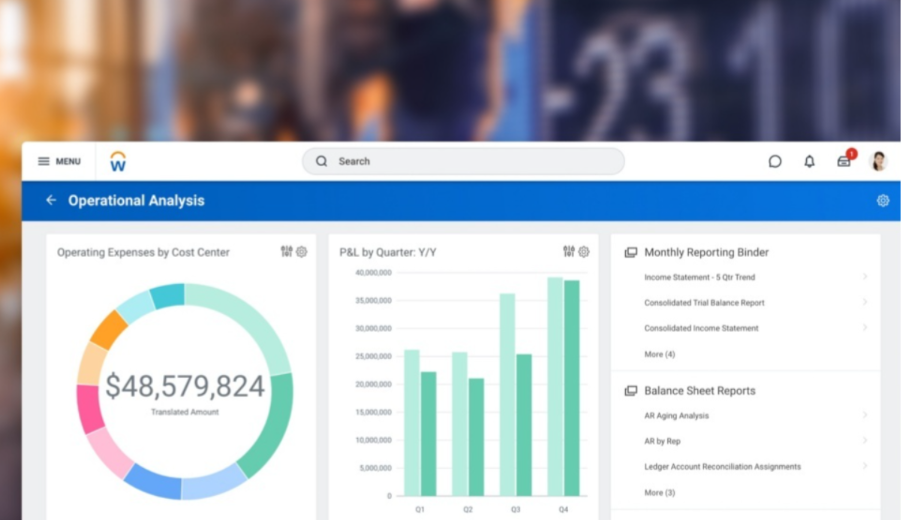Tech labor shortages have long plagued enterprise software projects, but the rapid adoption of Workday, fueled by cloud, AI, and integrated HCM and Finance suites, has made competition for talent fiercer than ever. Organizations everywhere are chasing Workday specialists, yet they’re struggling to fill critical roles. Open positions drag on, budgets swell, and transformation initiatives stall.
The root problem is that many hiring teams are still using outdated recruitment tactics that do not meet the needs of today’s talent market. To land top Workday professionals, hiring strategies must evolve to become more proactive, targeted, and brand-driven. Companies that embrace this change can build high-performing teams faster, deliver successful Workday implementations, and stay ahead of the curve.
Here are seven strategic pillars for building a modern Workday hiring playbook.

1. Define clear and specific role requirements
One of the biggest hiring challenges is vague job descriptions. In the Workday ecosystem, where modules, domains, integrations, and platform expertise vary widely, a generic “Workday consultant” or “Workday developer” description fails to attract the right candidates.
- Segment by domain: Each area, such as HCM, Payroll, Finance, Integrations, or Reporting, requires distinct skills.
- Define seniority: Entry-level, functional consultant, technical developer, and architect roles each have different expectations.
- Differentiate required skills from preferred ones: Specify essential skills such as Workday Studio, Business Process Framework, EIBs, and Report Writer, while listing skills such as adaptive planning or Prism as value-adds.
- Include soft skills: Communication, adaptability, and cross-functional collaboration are essential for long-term success.
Precise, domain-specific job descriptions filter out noise and attract only qualified professionals.
2. Prioritize Workday certifications
In the Workday ecosystem, certifications hold significant value. They prove real expertise and commitment to mastering the platform. Certified professionals not only understand configuration and development but can also align with business processes and compliance requirements quickly. Workday offers multiple certifications under the Workday Pro and Services tracks across various domains, including HCM, Payroll, Financials, Integrations, Reporting, and Adaptive Planning.
Examples include:
- Workday Pro HCM Core
- Workday Pro Payroll
- Workday Pro Financials Reporting
- Workday Pro Prism Analytics
- Workday Pro Integration
- Specialization: Benefits
- Specialization: Compensation
- Specialization: Recruiting
These certifications help employers identify credible talent, reduce onboarding time, and ensure project consistency. Certified professionals also align with Workday partners’ implementation standards, which further streamlines collaboration.
When drafting job descriptions, specify the certifications that are required or preferred for the role.
3. Evaluate hands-on project experience
Certifications and resumes indicate what a candidate knows, but their project experience shows what they can actually do. Focus on real-world exposure to Workday environments.
Look for examples such as:
- Module implementations: Experience in HCM, Payroll, or Compensation.
- Integrations: EIB, Workday Studio, REST, SOAP, or API-based integrations.
- Reporting and analytics: Custom reports, dashboards, and data optimization.
- Data migration: Handling legacy system transformations and ensuring data integrity.
- Problem-solving stories: How they resolved critical go-live or integration issues.
A structured skills rating matrix helps quantify technical and functional expertise, reducing screening time and ensuring unbiased evaluations.
4. Leverage specialized recruitment channels
Posting on job boards is useful, but it is only the starting point. The best Workday candidates often engage in specialized communities and referral networks.
To expand your reach:
- Participate in Workday partner and alumni groups.
- Engage in forums, webinars, and Workday Community discussions.
- Build relationships with experts through LinkedIn and professional groups.
- Encourage current employees to share job openings.
- Work with agencies that specialize in ERP and Workday recruitment.
A proactive and relationship-driven approach produces stronger pipelines and better-quality hires than traditional recruitment ads.
5. Offer competitive compensation and clear career growth
Workday talent is in high demand, and compensation packages must reflect that. Benchmark salaries carefully using industry data for your region and role type.
Beyond salary, offer:
- Certification sponsorships and training budgets.
- Defined career progression paths from consultant to architect.
- Hybrid or flexible work environments.
- Performance-based incentives tied to delivery outcomes.
Equally important is employer branding. Highlight success stories, transformation achievements, and employee testimonials on your website and social media. A strong brand reputation within the Workday community helps your organization stand out.
6. Conduct practical and scenario-based assessments
Resumes and interviews alone cannot reveal a candidate’s depth of knowledge. Use hands-on assessments to evaluate real capability.
Examples include:
- Designing a business process flow for a specific HR or Finance use case.
- Building or fixing a sample integration using EIB or Studio.
- Developing a report or dashboard from sample data.
- Explaining how they would handle a major system issue before a go-live.
Pair technical assessments with behavioral interviews to test collaboration, communication, and decision-making skills.
Once hired, invest in ongoing learning and internal training. A culture of continuous development improves retention and ensures long-term project success.
7. Evaluate cultural fit and collaboration skills
Workday projects involve cross-functional teamwork across HR, finance, and operations. A technically skilled candidate who lacks teamwork or communication abilities can slow down implementation.
Focus on:
- Adaptability: Ability to manage evolving requirements and dynamic workflows.
- Collaboration: Comfort in partnering with non-technical stakeholders.
- Communication: Clarity in translating technical issues into business terms.
- Mindset: Eagerness to learn, take ownership, and share knowledge.

A strong cultural fit creates a cohesive team environment where collaboration drives efficiency and innovation.
Finding the right Workday talent: a strategic approach
Hiring Workday professionals in today’s IT landscape demands clear role definition, certification-based screening, scenario-driven evaluations, and competitive compensation. Companies that combine these strategies with strong sourcing channels and an attractive employer brand can consistently attract and retain high-performing talent.
Specialized recruitment partners who understand the Workday ecosystem can make this process faster and more efficient. Their knowledge of Workday modules, certifications, and industry best practices helps match the right professionals to each project’s needs.
Ready to build your Workday dream team?
Partner with Procom to find certified Workday specialists who will transform your organization’s HCM and financial operations with precision and expertise.





